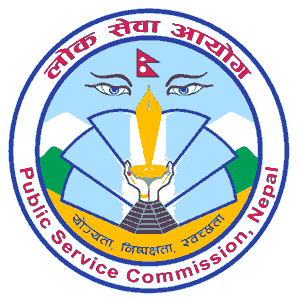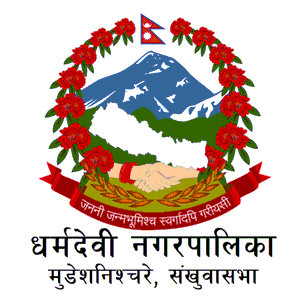Overview
Vijaya Laghubitta Bittiya Sanstha Ltd. (VLBS) is a microfinance institution licensed as a national level "D "class financial institution from Nepal Rastra Bank, the central bank of Nepal. Established on 7th Aug 2012 as a Public Limited Company under Company Act of Nepal and licensed from the Central Bank of Nepal on 3rd January 2013, it's head office is at Gaindakot - 5, Nawalparasi. It aims to provide banking services to the rural unbanked population and contribute to the overall poverty reduction program through the increment of production and productivity of rural Nepal.
The concept of VLBS was initiated by Vijaya Development Resource Centre (VDRC- Nepal), a national level NGO which is well known as one of the leading NGOs in promoting community-based microfinance model in Nepal and it was further backed and supported by Goodwill Finance, one of the leading finance companies and some 184 multi-disciplinary development professionals of Nepal. In fact, the promoters of the VLBS come from three major categories, Non-Government Organizations (NGOs), Bank and Financial Institutions and Individual Members.
VDRC, one of the major promoters, represents the NGO sector. It is well known as one of the leading NGOs in promoting a community-based microfinance model in Nepal and microfinance has been one of the major interventions and specialized areas of VDRC since 1990. Over three decades of its history in community development, VDRC Nepal has promoted more than 500 self-help groups and 250 community based micro-finance institutions, namely Savings and Credit Cooperatives (SCCs) over 30 districts in Nepal. VYCCU Savings and Credit Cooperative, which is based in Gaindakot, Nawalparasi, is one of the leading cooperatives in Nepal, was initiated and promoted by VDRC in 1990. The center is representing the NGOs sector.
Goodwill Finance Company, one of the leading financial companies in Nepal, is another major promoter of the VLBS. The company is the only institution that represents banks and financial institutions. The company is investing nearly 21.3% of the paid-up capital. There are 184 individual promoters of VLBS and the majority of them come from the development profession. The members have a diverse background including, microfinance, banking, economics, management, engineering, medicine, marketing, information technology, agriculture, forestry and so on.
The authorized capital of VLBS is Rs. 200 million (20 Crore) and issued and paid-up capital is Rs.19 Crore 98 Lakhs. It has been providing both financial and nonfinancial services to its members. The financial products include various loan products, savings products, insurance, and remittance services. Similarly, the nonfinancial services comprise of education on financial literacy, technical support to the entrepreneurs and marketing support. It works mainly through the solidarity group approach. It also has been trying to collaborate with Informal Groups/Self-help Groups and Cooperatives. The institution is governed by seven Board of Directors and the overall operations are led by a highly qualified professional team.
Vision:
Reaching the unreached: demonstrating excellence
Mission:
Establishing the bank as a center of excellence to cater to efficient and effective services with the less procedural hassle and minimal paperwork
Core Values
- Collective control and operation
- Working with and around excluded
- Equal opportunity to all castes, race, gender, ethnicity and geographical areas
- The best example of good governance such as transparency, rule of law and downward as well as upward accountability
- Inclusive board as well as a team of staff
Objectives:
The overall objective of VLBS is to contribute to poverty reduction and socio-economic development through microfinance services. The specific objectives of the bank are,
- To provide qualitative, effective and reliable banking services to the poor and disadvantaged groups including women of the rural community,
- To encourage entrepreneurship for self-sufficiency and promote the establishment of agro-based and other micro-enterprises in rural areas,
- To provide financial services to low-income clients or lending groups including consumers and the self-employed and provide support for market linkages;
- To support on production to market linkages;
- To enhance the capacity and skills of rural entrepreneurs for managerial effectiveness;
- To support the institutions that deliver these services can develop, within a few years, into sustainable organizations with steadily growing outreach
- To make a significant contribution to uplift the socio-economic status of the targeted community,
- To establish as a credible micro-finance institution by generating and mobilizing financial capital and earn a reasonable profit to the bank shareholders.
Institutional Policy and Strategy:
Being one of the microfinance institutions, VLBS will abide by official instructions, policies, and directives issued by the central bank. It will also follow the Nepal Government's policies and strategies formulated in the microfinance sector. Similar to other microfinance institutions, VLBS will work to increase access to financial services of the deprived and poor families/communities in improving their livelihood situation. It will, therefore, provide loans with or without collateral by identifying deprived families/households and encourage them in the establishment or improvement of their enterprises.
VLBS will adopt the following strategies to achieve its organizational goal.
a) Fund Generation/Mobilization
- Mobilize share capital raised from both promoters and the general public,
- Mobilize deposited fund through different deposit schemes namely compulsory savings, voluntary savings and other savings schemes that will be offered in the future,
- Mobilize funds borrowed from other financial institutions, particularly Nepal Rastra Bank, Commercial Banks and International Banks which are providing soft loans to the microfinance bank in Nepal.
b) Collaboration with other Agencies
- Collaborate with the government, non-government, private sector and donor agencies which are working on poverty reduction and livelihood improvement of the poor people. Collaboration would be possible with those agencies which are providing support through microfinance institutions. A middle point will be found to come to the negotiating point where all parties concerned can receive mutual benefits.
c) Loan Disbursement
- Provide loans to newly formed groups. The new groups will be formed if there is no any SCC or self-help group in the particular area. The potential members will be provided pre-group training before they formally become group members of VLBS.
- Provide loans to existing self-help group members and support the groups for their capacity building. VLBS will support and encourage the groups to register as SCC.
- Disburse loans through Savings and Credit Cooperatives (SCCs) which lack enough resources to meet the loan demand of their members. The SCCs will be provided required institutional development support including fund management training. An MoU will be signed prior to the financial transaction with the SCC members.
d) Capacity Building and Market Linkages
- Capacity building of individual entrepreneurs and also community organizations particularly, self-help groups and savings and credit cooperatives, through technical and nontechnical training programs would be an integral part of the major financial business of VLBS. Training will be provided through its own resources and also in collaboration with other agencies. VLBS will also work to develop linkages between small farmers and the market to sell the products produced at the community level. Collaboration and partnership with different agencies would be sought for market linkages.





